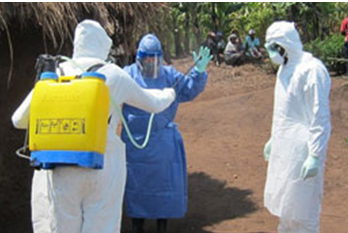Case reports are epidemiological studies that consist of the careful and thorough or comprehensive description of a patient’s health or disease summary which is usually given by the physician in charge of that patient. It is the most fundamental type of descriptive epidemiological study obtained from an individual in the investigation of a disease outbreak.
A case report involves a single case (i.e. one subject) with respect to a patient and, it describes unusual characteristics of the case or disease at the moment. It does not measure disease frequency and risk, and this type of descriptive epidemiological study is usually inexpensive to perform, speedy to carry out, and have no follow-up period.
Case reports are entirely descriptive and as such it cannot be effectively used to make conclusions about the general population of individuals (in this case patient’s) that are harbouring the disease being investigated. The sole purpose of a case report is to generate hypothesis that will further be used to address a disease outbreak properly.
CASE SERIES
Case series is an expanded case report epidemiological study. It is the qualitative study of the experience (exposure) of a small group of patient’s or individual patient to a disease and, that has a related medical diagnosis. Data from a case series epidemiological study are used to analytically investigate the underlying characteristics of a disease in any population/community of people.
Case series epidemiological study describes the characteristics of a number of patient’s (more than a single case) with a given disease in a population. Such studies are quick, inexpensive, and the cause-effect relationship of a case series study (just as in case report study) cannot be interpreted. A group of patient is examined in line with factors of a given disease, and case series studies also help to generate hypothesis. Case series studies can either be case-control studies or cohort studies.
References
Aschengrau A and Seage G.R (2013). Essentials of Epidemiology in Public Health. Third edition. Jones and Bartleh Learning,
Aschengrau, A., & G. R. Seage III. (2009). Essentials of Epidemiology in Public Health. Boston: Jones and Bartlett Publishers.
Bonita R., Beaglehole R., Kjellström T (2006). Basic epidemiology. 2nd edition. World Health Organization. Pp. 1-226.
MacMahon B., Trichopoulos D (1996). Epidemiology Principles and Methods. 2nd ed. Boston, MA: Little, Brown and Company. USA.
Nelson K.E and Williams C (2013). Infectious Disease Epidemiology: Theory and Practice. Third edition. Jones and Bartleh Learning.
Porta M (2008). A dictionary of epidemiology. 5th edition. New York: Oxford University Press.
Rothman K.J and Greenland S (1998). Modern epidemiology, 2nd edition. Philadelphia: Lippincott-Raven.
Rothman K.J, Greenland S and Lash T.L (2011). Modern Epidemiology. Third edition. Lippincott Williams and Wilkins, Philadelphia, PA, USA.
Discover more from #1 Microbiology Resource Hub
Subscribe to get the latest posts to your email.



